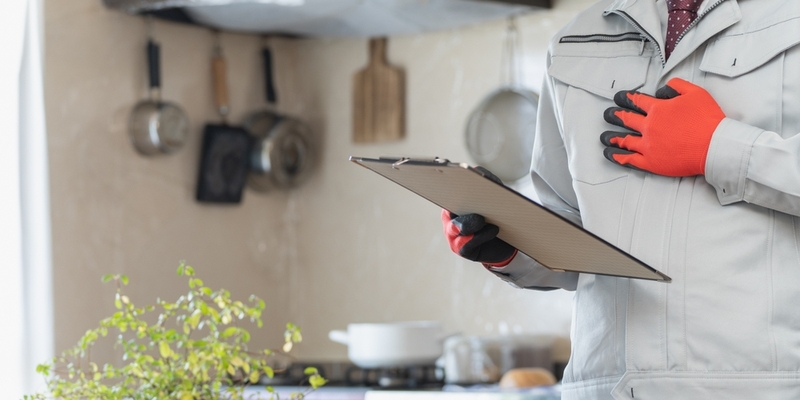
If you are not redirected within 30 seconds, please click here to continue.
Samedi: 10h – 16h HAE

If you are not redirected within 30 seconds, please click here to continue.
If you are not redirected within 30 seconds, please click here to continue.
The home inspection – whose responsibility is it?

This article has been updated from a previous version.
Recently, an Ontarian couple’s dream home which they bought without an inspection quickly turned into a nightmare.
Upon move-in, they found a rotting foundation, mushrooms in the kitchen, drywall deterioration throughout the house, water damage from a faulty dishwasher and more signs that should have been addressed before closing. The couple knew their newly purchased home would be a fixer-upper, but the full extent of it was a horrible surprise — one which kicked off a year of them living in what they described as a “construction zone”.
The couple were left to assume responsibility for 100% of the repairs, since they had set no condition before buying. However, when asked, they said they had no regrets and that “they would do it all over again.”
They were in a frenzied and hot housing market, where demand was high and supply for properties low. After looking at about twenty houses, and up against two other competing bids, the offer was made with no conditions and no home inspections.
Their case is not unique: To enhance the attractiveness of an offer in a hot housing market, buyers may minimize conditions to ensure a more seamless transaction.
If you’re considering doing the same, just be prepared for what you might find when you move in.
Related: How to deal with the pressures of homebuying
What is a home inspection?
A home inspection is a thorough examination of a property's condition, typically conducted by a professional home inspector. A home inspection is different from an appraisal, which focuses on determining the property's market value. Instead, the goal is to assess the overall condition of the home and identify any potential issues or areas that may need attention.
These are some common elements included in a home inspection:
Structural components: The inspector assesses the foundation, walls, roof, and overall structural integrity of the building.
Exterior evaluation: This involves examining the exterior features of the property, including the siding, windows, doors, and the condition of the landscaping.
Roof and attic: The inspector checks the roof's condition, looking for any signs of damage or leaks. They may also assess the attic for proper insulation and ventilation.
Interior inspection: This includes a thorough examination of the interior spaces, checking for issues with walls, ceilings, floors, doors, and windows.
Plumbing system: Examines the plumbing system, including pipes, fixtures, and water heaters, to identify any leaks or issues.
Electrical system: Checking the electrical components, such as wiring, outlets, switches, and the electrical panel, to ensure they meet safety standards.
Heating, ventilation, and air conditioning (HVAC) systems: Assesses the functionality and condition of the heating and cooling systems.
Appliances: The inspector may test and evaluate the condition of the included appliances, such as the stove, dishwasher, and water heater.
Basement and crawl spaces: Examines these areas for signs of water damage, foundation issues, or other concerns.
Environmental factors: Some inspections may include assessments for environmental issues like radon, mold, or pest infestations.
After the inspection is complete, the inspector typically provides a detailed report outlining their findings. This report can help buyers make informed decisions about the property, negotiate repairs or price adjustments and understand the potential maintenance needs of the home.
How much do they cost?
The cost of a home inspection varies across the province, depending on the location and size of the house. Typically, you can expect to pay $460 to $650 for a home inspection.
Read more: Home inspections 101: Why you don’t want to skip this critical step
Who’s responsible for the home inspection?
There’s no clear answer on who is responsible for the home inspection. A home inspection can be useful to both buyer and seller for different reasons. The buyer will typically order a home inspection for themselves if they’re serious about a property; while the seller may just want to go ahead and order one before putting their home on the market to make the house more desirable.
Why a buyer should order a home inspection
At the end of the day, if this is going to be your home, you want to make sure that it’s in a livable condition before closing. Do not skip the home inspection. Too many problems – problems that don’t immediately stand out – come to the surface after closing.
If (and, more realistically, when) the issues are discovered, you can make a clean inspection a condition of your offer. Make sure that the problem has been fixed at its source – it’s all too easy for sellers to cover up the issue, making it appear as if it has been repaired.
If you waive the home inspection, any problems that arise are your responsibility. And if you do order a home inspection, don’t be discouraged if the report comes back with a few negative notes – a perfect inspection is extremely rare, and the inspector is obligated to report everything they find. Keep in mind that the home inspection is not a buyer’s wish list. It simply dictates which systems should be in good working order at the time of closing.
Why a seller should order a home inspection
Think of your house as a product – a product that is about to compete with similar products on the market. Potential buyers want to know that the house is good and as close to move-in ready as possible. They definitely do not want to inherit your maintenance and repair hassles.
Although it is your responsibility to make sure that the home is livable for closing, don’t feel that you must comply with unreasonable demands for repairs. You do have the right to say no.
“Pre-listing home inspection”
It is standard procedure for the homebuyer to order a home inspection, but as the seller, you can get ahead of the game by springing for it yourself. Although you are not expected to conduct a pre-listing home inspection, the Canadian Mortgage and Housing Corporation recommends doing so. A home inspection:
- Allows you to take care of serious deficiencies beforehand
- Reassures homebuyers, providing them with peace of mind
- Keeps you in the driver’s seat
- Can lead to a much quicker close
- Helps fetch you offers meeting or above your asking price
Uncovering problems can also give you more listing options. You can choose to deal with the problem by getting the repairs done, or you can lower your asking price, so it appropriately reflects the value of your home. Foundation problems, for example, can be quite costly. If you discover an existing problem, but cannot make the repair yourself, you can at least adjust the price of your house upfront.
The price can, therefore, reflect the true value of the house, foundation problem and all. You could also provide the buyers with an allowance that allows them to make the repairs after closing, although some buyers may find that practice unnecessary.
Hiring a home inspector
When you’re ready to hire the home inspector, whether you’re the buyer or the seller, make sure that the person you choose is qualified and experienced. Visit the Canadian Association of Home and Property Inspectors (CAHPI) website to find a qualified inspector.
Make sure to ask questions. Quite often the inspector will happily explain proper maintenance and operating procedures.
Finally, keep in mind that the home inspector is not there to make the decision of whether to buy for you. Ultimately, the home inspection is the buyer’s responsibility – if you choose to waive an inspection at closing, any problems that arise are yours to deal with.
Impact on home insurance premiums
Home insurance premiums are based on various factors such as the age and condition of the home, the location, the materials used in construction, and the overall risk of potential claims. A thorough home inspection can provide information about the condition of the property, helping insurance companies assess the risk more accurately.
If the home inspection reveals that the property is well-maintained and has minimal risks (e.g., no significant structural issues, up-to-date electrical and plumbing systems, and a sound roof), it may present a lower risk to the insurance company.
For example, if a home inspection reveals that your roof has significant wear and tear or damage, you can ask to have it replaced or repaired before finalizing the home purchase. Once the roof is in good condition, you can provide documentation of the improvements to your insurance company. A well-maintained roof reduces the risk of leaks and water damage, factors that insurance companies consider when assessing premiums.
Read next: The hidden costs of buying a home
Don't waste time calling around for home insurance
Use Rates.ca to shop around and compare multiple quotes at the same time.
Finding the best home insurance coverage has never been so easy!
Get money-saving tips in your inbox.
Stay on top of personal finance tips from our money experts!








